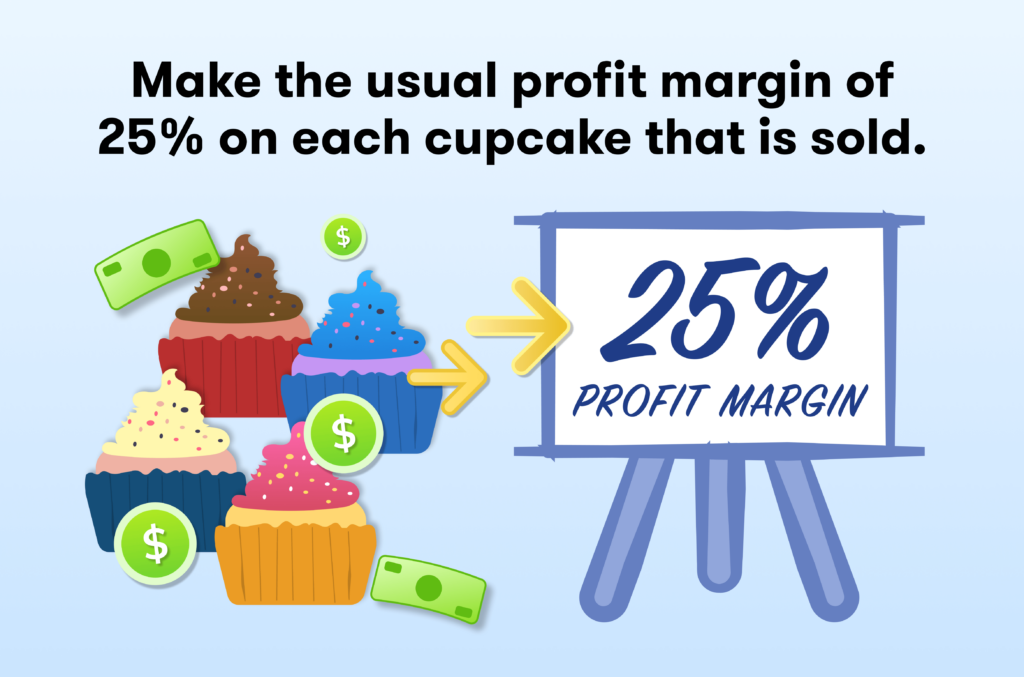SMART Goals Explained the Humorous Way (Free Template Included)


Share this article

Setting goals in business is absolutely important as it gives a sense of purpose and direction. When you set ambitious business goals, it injects a sense of excitement and mission throughout the organization.
According to research by McKinsey, 70% of workers said that work defines their sense of purpose in life. So, if you want to retain top talent, attract customers, and thrive in the ever-changing business world, setting goals is not only necessary, it’s a must.
Today, we will discuss a specific type of goal, called SMART goal. Yes, it’s SMART, not smart. It’s an acronym and it stands for something. In this article, we'll take you on a fun and humorous journey to discuss the concept of SMART goals and show you how they can transform your business.
So, let’s dive into it.
According to research by McKinsey, 70% of workers said that work defines their sense of purpose in life. So, if you want to retain top talent, attract customers, and thrive in the ever-changing business world, setting goals is not only necessary, it’s a must.
Today, we will discuss a specific type of goal, called SMART goal. Yes, it’s SMART, not smart. It’s an acronym and it stands for something. In this article, we'll take you on a fun and humorous journey to discuss the concept of SMART goals and show you how they can transform your business.
So, let’s dive into it.
What Are SMART Goals? (Hilariously Explained)
First of all, let’s uncover the true meaning of the acronym SMART. SMART stands for Specific, Measurable, Achievable, Relevant, and Time-bound. Well, yes, you probably already know it. But hey, since we’re talking about SMART business goals, we’ve got to mention what it stands for. Now, let’s understand each of these terms in detail, but in a fun and exciting way.
Specific
If you’re running a business or a very important project in a business, your goal must be as specific as possible. If you’re familiar with Batman, you’d know that he doesn’t go out after random people—he specifically fights the Joker. That’s how specific you have to be, too.Measurable
Your business goals must be quantifiable. Think like a fitness freak who measures every calorie they burn and every mile they run. So, if your goal is to increase revenue in 6 months, measure how much revenue actually increased after that time period.Achievable
There's always that one person in every business who is super confident. They are so confident that they set goals that are impossible to achieve. They might say things like, 'Let's put Apple out of business in 3 years' or 'We're going to acquire every competitor by the end of the next quarter.' Don’t be that guy, Be rational and set goals that are actually achievable.Relevant
Are your goals relevant to your overall business strategy? If not, then they can’t be called SMART business goals. For instance, just because your business owner friends have a TikTok account for business, that doesn’t mean you should do it too. Posting short, goofy videos may be trendy, but if your customers are aged over 40, you could choose other platforms.Time-bound
Have you ever ordered a pizza from Domino’s? And have you ever waited impatiently for 30 minutes to put that delicious pizza slice in your mouth? Well, your SMART business goals are the same. You should achieve them in a set time and reap the rewards. And then maybe have an office pizza party to celebrate.KEY TAKEAWAYS
- SMART stands for Specific, Measurable, Achievable, Relevant, and Time-bound.
Example of a SMART Goal
Great, now that you thoroughly understand what SMART stands for, let’s consider a practical example to ensure you truly grasp the concept.
Let’s assume that Rebecca runs a cupcake shop in New York. Here’s what a SMART goal can look like for her.
As you can see, this statement is very specific. It mentions that the cupcakes are going to be vegan and also specifies the type and number of flavors. It’s far more useful than saying, ‘Ummm, I think I should sell a different type of cupcake.’
Rebecca knows by her historical sales record that, for some reason, her customers love chocolate-flavored cupcakes more, while vanilla and blueberry cupcakes can be hard to sell. That’s why she carefully measures what she can achieve in 3 months. Smart move, Rebecca.
Again, Rebecca knows what she is doing. She knows the usual profit margin in her industry, and she realistically sets a similar margin for her new, vegan range. Instead of setting it to a 60% or 80% profit margin by falsely assuming that her cupcakes are the best in town, she chooses an achievable figure.
This statement also makes sense because she is planning to sell cupcakes in a cupcake shop. Although it’s going to be a different range of cupcakes, the main product is still cupcakes, which is highly relevant to the business.
Woah, Rebecca is moving fast. And that’s how it should be. The final step to creating a SMART goal is adding a timeframe to it. As you may know, a goal without a timeline is not a goal—it’s just a wish.
SMART goal: Introduce a new range of vegan cupcakes in four flavors (chocolate, strawberry, blueberry, and vanilla) and increase sales by 20%, 15%, 10%, and 10% for each respectively within 3 months. Maintain a profit margin of 25% on each cupcake sold. Secure an affordable vegan raw material supplier within 15 days and launch the new range within 1 month.
Let’s assume that Rebecca runs a cupcake shop in New York. Here’s what a SMART goal can look like for her.
Specific

As you can see, this statement is very specific. It mentions that the cupcakes are going to be vegan and also specifies the type and number of flavors. It’s far more useful than saying, ‘Ummm, I think I should sell a different type of cupcake.’
Measurable

Rebecca knows by her historical sales record that, for some reason, her customers love chocolate-flavored cupcakes more, while vanilla and blueberry cupcakes can be hard to sell. That’s why she carefully measures what she can achieve in 3 months. Smart move, Rebecca.
Achievable

Again, Rebecca knows what she is doing. She knows the usual profit margin in her industry, and she realistically sets a similar margin for her new, vegan range. Instead of setting it to a 60% or 80% profit margin by falsely assuming that her cupcakes are the best in town, she chooses an achievable figure.
Relevant

This statement also makes sense because she is planning to sell cupcakes in a cupcake shop. Although it’s going to be a different range of cupcakes, the main product is still cupcakes, which is highly relevant to the business.
Time-bound

Woah, Rebecca is moving fast. And that’s how it should be. The final step to creating a SMART goal is adding a timeframe to it. As you may know, a goal without a timeline is not a goal—it’s just a wish.
Rebecca’s SMART business goal
Now, if we combine all the statements mentioned above, we can finalize what Rebecca’s SMART goal should look like. Ready? Here we go.SMART goal: Introduce a new range of vegan cupcakes in four flavors (chocolate, strawberry, blueberry, and vanilla) and increase sales by 20%, 15%, 10%, and 10% for each respectively within 3 months. Maintain a profit margin of 25% on each cupcake sold. Secure an affordable vegan raw material supplier within 15 days and launch the new range within 1 month.
Why You Should Always Set SMART Business Goals
Now, before we end this article, let’s quickly discuss the importance of setting SMART goals in business. This will only take another minute, but once you know the ‘why’, your future goal-setting will be more meaningful to you. Alright, let’s begin.
1. It gives you more clarity
According to research, 90% of startups fail. Yes, most startups will fail, but the ones that don’t have one thing in common—they know exactly what their goals are and they know how they’re going to achieve them. Clarity is essential when you’re starting out in business and even when you’re successful. And what better way to have clarity than setting SMART business goals?2. Singular focus
According to a thought-provoking article published in Inc., an alarming 92% of people fail to achieve their goals. The article also mentions that the 8% who do achieve their goals avoid multitasking. When you create SMART goals, you can remove multitasking from the picture by having a well-defined set of tasks. Business directors, CEOs, and project managers, who struggle with deciding where their focus should lie, should definitely incorporate the SMART approach into their professional lives.3. Higher success rate
Yes, there’s evidence to prove this. According to a study quoted by Michigan State University, writing down goals and actions resulted in a 76% success rate, which was 33% higher than those with unwritten goals. SMART goals are not only written goals but also very precisely written goals with lots of detail. This is bound to bring a higher success rate.4. Better performance and productivity
When goals are SMART, everybody on the team knows the direction in which the project is heading. Each team member is aware of their role in achieving the goal and knows what they bring to the table. This shared understanding fosters a collaborative environment, sort of like an ancient tribe on the hunt. Furthermore, setting SMART goals can also help you allocate human resources efficiently, which can play a crucial role in improving overall productivity.5. Improved time management
There’s no denying that in business, time is money. And because time is an integral part of the SMART framework, setting time-bound goals can prevent you from unnecessarily prolonging important tasks. Furthermore, SMART business goals are vital in creating an effective project timeline. By establishing clear deadlines for each task and milestone, you gain a comprehensive view of the project's timeline from start to finish.Free SMART Goal Template
Consultport is proud to introduce the free SMART Business Goal Template—your key to simplified decision-making, increased productivity, and ultimate success for managers and teams.
This free template provides a clear framework that aligns with the SMART (Specific, Measurable, Achievable, Relevant, and Time-Bound) model, making goal-setting much easier.

Download it now and enjoy the benefits of this time-saving business tool. Whether you're already familiar with the SMART model or simply a curious newbie, this template can be beneficial either way.
This free template provides a clear framework that aligns with the SMART (Specific, Measurable, Achievable, Relevant, and Time-Bound) model, making goal-setting much easier.

Download it now and enjoy the benefits of this time-saving business tool. Whether you're already familiar with the SMART model or simply a curious newbie, this template can be beneficial either way.
Share this article
Premium content,
on a weekly basis.
on a weekly basis.
Subscription implies consent to our privacy policy.
×
Subscribe to our newsletters!
Discover our Consultant's Expertise
Ready to get access to the world’s best consultants?
